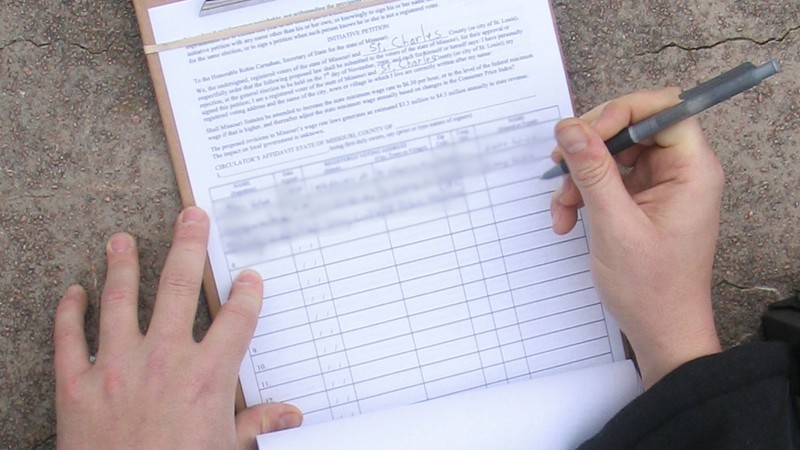About 18 months ago, a wealth-fueled campaign to repeal the then-new capital gains tax quietly folded. The official line was “let’s wait for the Supremes to rule,” but the real reason was the crazy-high cost of signature gathering in an immediately post-COVID world.
Flash forward to today. The Supremes upheld the tax back in the Spring, but the suddenly potent conservative initiative machine that is Restore Washington and Let’s Go Washington1 has a date this week with the Secretary of State’s office to turn in signatures for Initiative 2109, which would repeal the tax on most capital gains of more than $250,000 and punch a significant hole in the state’s balance sheet.
In the parlance of the poker table, that decision in the spring of 2022 looks like a good fold.² That signature drive would have cost those rich folks as much as $8 million in 2022. I-2109 looks like it’s going to qualify for one-sixth of the roughly $7 million that Let’s Go Washington — the money comes mostly from Republican megadonor Brian Heywood — has spent so far to qualify its slate of six initiatives. That slate includes a repeal of the Climate Commitment Act, which is raking in billions from major emitters of carbon pollution.
We could be looking at a new era of ballot initiative politics, in which conservatives routinely force statewide votes to rein in the more progressive inclinations of Democratic lawmakers and governors. It’ll be a test of a premise I mentioned earlier: Voter antipathy in suburban and exurban swing districts for Republican candidates for the Legislature in recent years may not signal a wholehearted embrace of an expansive — and expensive — progressive agenda.
Also, if the capital gains repeal qualifies, it will bring onto the field the money of at least some of the rich folks paying this tax, which brought in nearly $900 million in its first year. Some significant portion³ of the nearly 4,000 households who coughed up that cash are surely unhappy.⁴
Restore Washington/Let’s Go also plans to deliver signatures for Initiative 2111, which would reinstate the statutory ban on local income taxes. The Court of Appeals tossed out a similar law a few years back. The practical effect of such a law isn’t that significant, but it’ll still be catnip for tax-averse voters.
All this figures to make next year’s campaign season far more interesting. We’re told that the backers of last year’s repeal effort are behind the slate approach instead of the single-subject campaign they were teeing up last year. Will the left’s millionaires and billionaires step up to contest the slate? What about the deep-pocketed public-sector labor unions that arguably have the most skin⁵ in the game?
And what impact will the initiatives have on the long list of state offices on the ballot next year, from the governor’s sweet suite — open for the first time since 2012 — to the 98 slots in the state House? Siphoning millions out of donors on both the right and the left for expensive initiative campaigns could leave some of those candidates strapped for cash.
It’s worth remembering that the original sponsor of both tax initiatives was Rep. Jim Walsh, R-Aberdeen, now the chair of the Washington State Republican Party. The party chair’s job is to create an environment in which its candidates have a better chance to win. Will a side dish of red-meat conservative initiatives draw votes to GOP candidates?
Footnotes:
1. Restore Washington is a largely volunteer effort aimed at resurrecting Tim Eyman’s populist anti-tax initiative movement without Eyman’s baggage. Let’s Go Washington is an allied PAC with the cash to hire paid signature gatherers.
2. For example, if you’re holding a pair of tens in a hand of Texas Hold’em, but you’re looking at a pair of aces on the board, you have to confront the near-certainty that one of your opponents holds a third ace and cut your losses.
3. Yes, we concede that some percentage of these affluent taxpayers subscribe to Oliver Wendell Holmes Jr.’s argument that one should enjoy paying taxes because it’s buying civilization. Not all of them.
4. That’s more than $22K per household on average, although it’s likely that a relative handful bore the brunt.
5. Repealing the capital gains tax and the Climate Commitment Act would likely force deep cuts in state spending.
This article first appeared in the author’s political website, The Washington Observer.
Discover more from Post Alley
Subscribe to get the latest posts sent to your email.

Crosscut.com’s Joseph O’Sullivan has a comprehensive look at the revival of the ballot initiatives in this new story: https://crosscut.com/politics/2023/12/six-measures-washington-conservatives-are-pushing-2024-ballots
One conclusion is that Republicans couldn’t carry the day in the legislature on these issues, due to their significant minority, but they’re betting that the people will side with them through the initiative process. The other conclusion is that it won’t matter. Even if the initiatives pass, the Democrats will circumvent the result just like they did with the car tabs.
I’m sure the same initiative organizers are happy there’s no option for “democratic” initiatives at the federal level, such as on gun control, abortion rights, protection from climate change impacts, redistricting, and more.